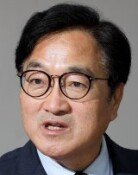Israeli AWACS Contender Questioned
Controversy is mounting as the Defense Acquisition Program Administration (DAPA), which is pursuing the Korean Air Forces E-X Project on the acquisition of an airborne warning and control system (AWACS), is pushing ahead with a trial assessment on a system from a company that it initially said would not be included in the trial.
A military source said on May 14 that the Air Forces trial assessment team recently held trial assessments on two candidate aircraft of the E-X Projectan E-737 from the U.S. aircraft maker Boeing and a G-550 from its Israeli competitor Eltaand reported the results to the Air Force chief of staff.
The problem is that DAPA went against its initial plan and let Elta participate in the trial assessment, despite the fact that the Israeli aircraft manufacturer has failed to get from the U.S. government the export licenses that it needs to export U.S. communications devices to be embedded in the G-550.
Out of three export licenses needed from the U.S. government, namely DSP-5, DSP-85 and the Technical Assistance Agreement (TAA), all that Elta has as of the end of last month is DSP-5 approval, while Boeing already has all the required export licenses and has submitted them to the DAPA.
The DSP-5 approval is the U.S. governments permission to provide a third country with only the basic performance and information of a device open to the public; it is in the most basic phase of export licensing. Most of the detailed performance statistics and technical documents on key communications devices for the E-X Projectitems whose export is restricted by the U.S. governmenthave been classified, so DSP-85 and TAA clearance, which are at higher levels than DSP-5, is required for a company to offer them to a third country.
In the trial assessment, both systems satisfied required operational capabilities (ROC), said an official from the Air Force. The final results of the assessment will be reported to the DAPA around May 19.
DAPA Administrator Kim Jeong-il, however, had said on April 5 in the National Defense Committee of the National Assembly, If Elta fails to submit additional data (DSP-85 and the TAA) by the end of April, it would not be able to take part in the trial assessment and thereby be disqualified, in response to the inquiry by Rep. Song Young-sun of the Grand National Party (GNP) on the E-X Project.
Asked by Rep. Song whether the trial assessment for the E-X Project would be held only on Boeing in case Elta was eliminated from the bid, Kim stated, One who fails to submit [additional data] would not be allowed to participate in the trial assessment, adding that in such a case, the trial assessment would be held only on Boeing.
Nevertheless, the DAPA acted contrary to its own plan by asking the Air Force in early May to hold a trial assessment on both the Boeing and Elta systems.
Some in the military are raising suspicions regarding the process of the Air Force trial assessment, saying that it would be hard to make a trial assessment on a company without DSP-85 and TAA clearance, and a company that could not submit specific performance statistics and technical documents necessary for accurately assessing the performance of the equipment in question.
Criticism has intensified that the E-X Project is leaning too much toward tolerating a certain bidder, as the principle of selecting a system, confirmed by DAPA Administrator Kim at the National Assembly, is being upset in just one month, said one military official.
Sang-Ho Yun ysh1005@donga.com







